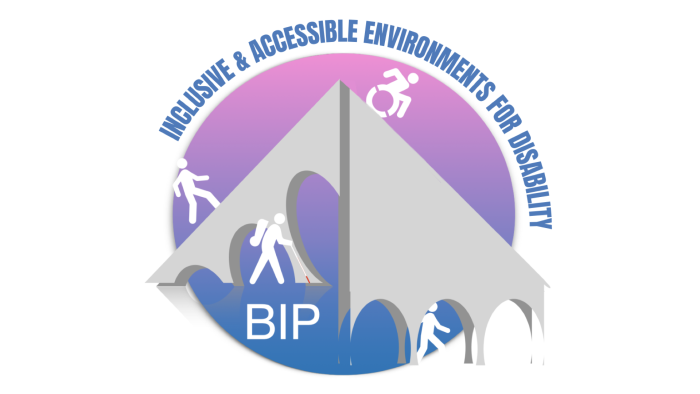
The Blended Intensive Programme (BIP) entitled Inclusive & Accessible Environments for Disability is hosted by the University of Bergamo (Italy) with the collaboration of the University of Picardie Jules Verne (France), the Bauhaus-Universität Weimar (Germany), and the University of Castelo Branco (Portugal).
It is a short course for higher education students from partner institutions addressing basic concepts, models, criteria and indicators for promoting inclusion and participation of the persons with disabilities in the living environments (built, digital and natural), with a particular focus on the theme of accessibility and universal design.
Furthermore, it will develop a broad-spectrum knowledge of the technologies (mainstream and assistive) to support social inclusion in relation to the different types of disabilities.
Finally, the course aims at promoting in participants preliminary skills in analysing existing situations and designing environments and solutions from an inclusive and participatory perspective.
UniBg academic coordinator: Mabel Giraldo
UniBg administrative coordinator: Silvia Cortinovis
Organizing committee: Sara Cecchetti, Antonella Gilardoni
Info: bip.inclusion@unibg.it
Eligibility
Language requirements
Erasmus+ Grant
All the activities are accessible for students with disabilities.
Phase 1: Online sessions (E-mate Flat)
Kick-off Meeting and programme presentation
April 2026
BIP program presentation, student’s presentation and survey on background and expectations
Phase 2: Intensive week in Bergamo (Italy)
May 4th-8th 2026
Thanks to the collaboration with local experts and organisations, the BIP theoretical and practical sessions concern environmental accessibility and inclusion in different life contexts (built, digital, natural and urban) with particular attention to technologies. The program include:
For more information, visit the dedicated website.
È stato pubblicato il Bando di selezione per la partecipazione al Blended Intensive Program (BIP) ERASMUS+ "Inclusive & Accessible Environments for Disability" a.a. 2025-2026
La selezione è riservata agli studenti e alle studentesse regolarmente iscritti/e per l'anno accademico 2025-2026 a un corso di laurea triennale o laurea magistrale del Dipartimento di Scienze Umane e Sociali.
Occorre dimostrare di possedere la conoscenza della lingua inglese al livello B1 certificabile con un esame in piano di studi già sostenuto o con una certificazione internazionale.
Per maggiori informazioni, consulta il bando completo.